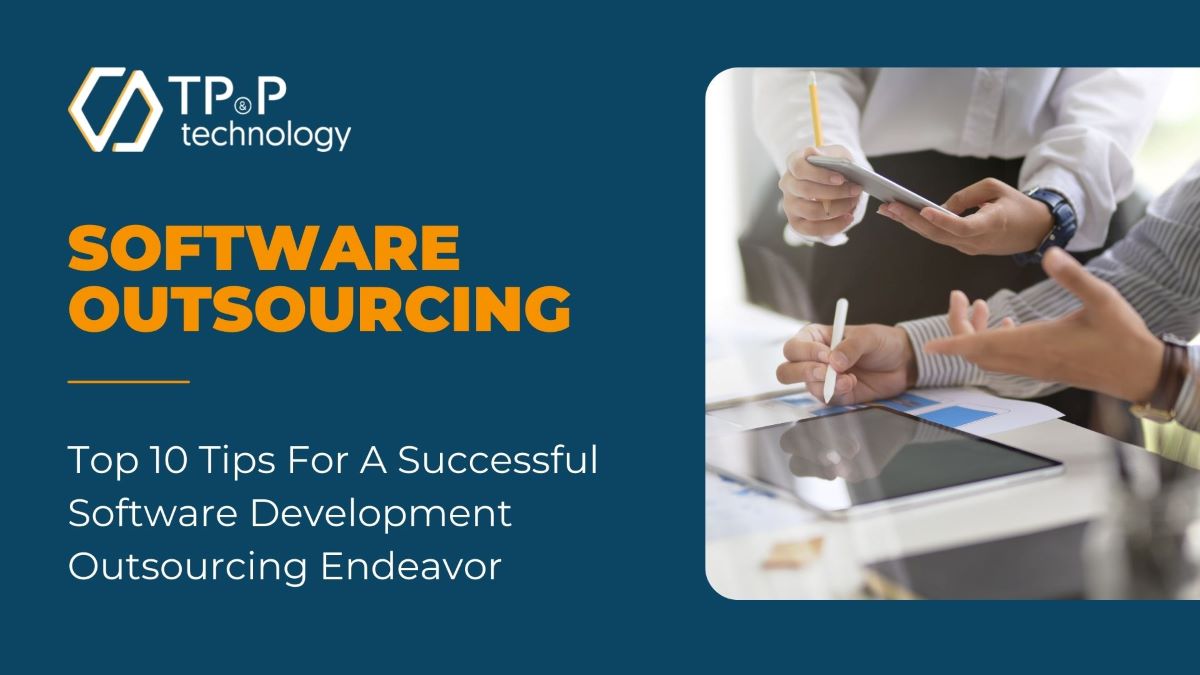
Top 10 Tips For A Successful Software Development Outsourcing Endeavor
Many business organizations have their own in-house IT team to develop custom software solutions needed for their operations. However, in many cases, organizations that are in need of a bespoke solution usually turn to software outsourcing vendors to help them with such specific requirements. At the same time, the software development outsourcing market is full of vendors that can help fulfilling special requirements ranging from sales and marketing, CRM, to advanced data analytics, etc.
As a business leader, it’s important that you take the time to carefully evaluate and choose the right outsourcing vendor. Otherwise, the software solution built can actually bring as many problems as it solves. In particular, it’s essential to have a thorough assessment, step-by-step process when selecting your software outsourcing partner to ensure the project is delivered on time, within budget and the final product works as expected.
Below, we share the 10 expert tips that businesses should consider before signing their outsourcing contracts with the software vendor of choice.
- Begin With Clear and Well-Defined Project Requirements
Understand your desired outcomes, and begin with well-defined requirements. Think of the project requirements as an anchor. You can’t expect your software outsourcing partner to build a solution for you without knowing what exactly it expects to do. Yet, it’s equally important that you stay flexible and leave room for change requests throughout the project.
- Think In Terms Of Interoperability
Think “interoperability.” This is important because, in today’s digital economy world, a particular software does not work in isolation where processes, APIs, data, cyber security, and so on need to work in connection with other tools. Therefore, consider an end-to-end solution in order to achieve a successful outsourcing endeavor.
Here, the term “interoperability” may encompass both the internal and external software systems where the software solutions need to work in unity in order to help solve a problem.
- Carefully Consider a Solution That is Flexible
An inflexible software solution can lead to incompatibility issues in the future, making it hard to integrate with other solutions.
Thus, it’s recommended that you adopt a cloud-based solution that can integrate seamlessly into your existing IT infrastructure. All in all, it’s important to make sure the solution provided is future-proof and not locked into one specific vendor.
- Ensure The Software Solution Solves Your Specific Problems and That Your Team Can Work on It
Many software solutions may require extensive training and sufficient knowledge transfer to operate. Thus, it’s essential to make sure that your software outsourcing partner can provide the necessary people and processes to integrate the software into your workflows after its finished development, ensuring smooth post-live support and sustainability.
- Take A Look At The Cyber Security And Practices
Cyber security risks are always there and evolved along with the advancement of technology - malicious hacking activities and many attacks happened on a daily basis which suggests that your business operation is only as secure as the software you use.
As a precaution, business organizations need to carefully consider the security policies and data protection practices of their outsourcing partners, for example, whether ISO 27001:2013 standard is applied to ensure information protection.
- Talk To Multiple Vendors, And Rank Them Accordingly
It’s important to talk to more than one vendor to ensure that you will have a fair deal and the best value for money. Positive reviews are an important aspect of decision making but those, alone, should not be the sole criteria. Once you have shortlisted a few potential software vendors of choice, the next step is to do some reference checks. Have a list of exactly what you want and have each vendor rank against the criteria and among themselves.
- Speak To Current Customers Whose Project Is Similar To Yours
As mentioned above, before embarking on outsourcing, it’s crucial that you conduct reference checks to ensure the partner you choose is right for the project. For starters, you can review what the potential vendors provided and then speak with those companies to learn about the services provided. If your shortlisted vendor cannot provide such information, then it’s probably time that you look for another one.
- Determine The Total Final Cost of Ownership
The total cost of ownership involves more than just the labor cost (calculated by multiplying the outsourcing rate) since other factors such as storage, license, add-on features, etc. are also included. It’s a good idea to find out what is included and not included in the total final costs of ownership for a cost-effective project.
- Pay Attention to Ongoing Maintenance
One aspect of outsourcing that many companies often fail to notice is the ongoing maintenance and support personnel needed to operate the software solution they just built, regardless of whether it’s being an on-premise or cloud solution.
In fact, the journey doesn’t stop after going live, because the software solution not only needs to be able to solve the problems at hand but also run smoothly over time, leaving room for scalability and upgrade with no down-time, as well as being compatible with new technologies and allowing business organizations to keep pace with the changing market conditions.
As a result, it’s important to make sure that your outsourcing vendor of choice will stay as an ongoing business in the future and that their services stay relevant to your needs.
- Establish Good Working Relationships With Your Outsourcing Vendor’s Key Personnel
When it comes to software outsourcing, the in-house IT department will usually delegate all the way and outsource the entire project to the vendor. Yet, the IT team and business leaders will still need to collaborate and spend the necessary time and effort in doing their parts before as well as after closing a deal. Having a good relationship and efficient communication are keys to ensuring a successful collaboration.



